Titolo The Remaking of the Euro-Mediterranean Vision – Challenging Eurocentrism with Local Perceptions in the Middle East and North Africa
Autori Aybars Görgülü & Gülşah Dark Kahyaoğlu
Titolo The Remaking of the Euro-Mediterranean Vision – Challenging Eurocentrism with Local Perceptions in the Middle East and North Africa
Autori Aybars Görgülü & Gülşah Dark Kahyaoğlu
Director: Sophie Djama
Country: Francia | Year: 2011 | Lenght: 28′
MedFilm Festival 2018 // Démain, Algerie
One evening in Algiers, Myassa is the victim of a rapist who, however, cannot get an erection. Back home he can’t take a shower because the old pipe doesn’t work. The next morning, Myassa has two goals: to report the violence suffered and to call a plumber. She will come face to face with his attacker …
SOFIA DJAMA
Born in Oran in 1979, Sofia Djama moved to Algiers to complete her studies and graduate in Literature. At the beginning of the 2000s, he began to write a collection of short stories with young Algerians as protagonists. Mollement, a samedi matin, the adaptation of one of these stories, receives two awards at the 2011 Clermont-Ferrand Film Festival. These awards encourage her to pursue a career in the world of cinema. Les Bienheureux (2017), his first feature film, is selected in Venice in the Orizzonti section.
The Department of Oriental Studies – La Sapienza and MEDFILM FESTIVAL present the Internship Study Day “Equal and different: Iso-MedFilm Festival 2020-2021”. During the meeting, the website of the “Voices and Images of Intercultural Dialogue in the Mediterranean” project and the Medfilm Festival archive at the DISO Library will be presented.
The webinar will be held on the zoom platform, Monday 15 February 2021, from 2.00pm to 6.30pm Participation is open to all stakeholders Registration with a nominative request email at the address webinartirocinio@gmail.com
Program
Introduction: Franco D’Agostino, Director of the ISO Department; Ginella Vocca, President of MedFilm Festival-MFF; Laura Guazzone, Internship Manager.
h. 14.15-14.25 Presentation of the VOCIMED.IT WEB SITE of the Third Mission Iso project “Voices and images from dialogue intercultural in the Mediterranean ”, L. Guazzone, Iso Sapienza and V. Flora, MFF.
FIRST PART (moderated by Guazzone, directed by Flora)
h. 14.30-15.00 “Human Rights” Theme: Human Rights in Contemporary Islam. An open debate – Francesco Zappa, Iso Sapienza.
h. 15.00-15.10 Debate
h. 15.10-15.45 Theme “cultural dialogue”: The dialogue between cinema and contemporary Arab literature: the Egyptian microcosm – Ada Barbaro, Iso Sapienza.
h.15.45-15.55 Debate
h. 16.00- 16.30 MEDFILM FESTIVAL SHORT Debate
SECOND PART (moderated by Zappa, directed by Barbaro)
h. 16.30-17.00 “Political dialogue” theme: The Mediterranean that unites and divides: contemporary history of an idea – Laura Guazzone, Iso Sapienza.
h. 17.00-17.100 Debate
h. 17.10-17.40 Gender issue theme: Body, awareness and freedom. Paths in Mediterranean cinema – Veronica Flora, MFF
17.40-17.50 Debate
h. 17.50-18.30 What intercultural dialogue in the Mediterranean? Concluding remarks and debate
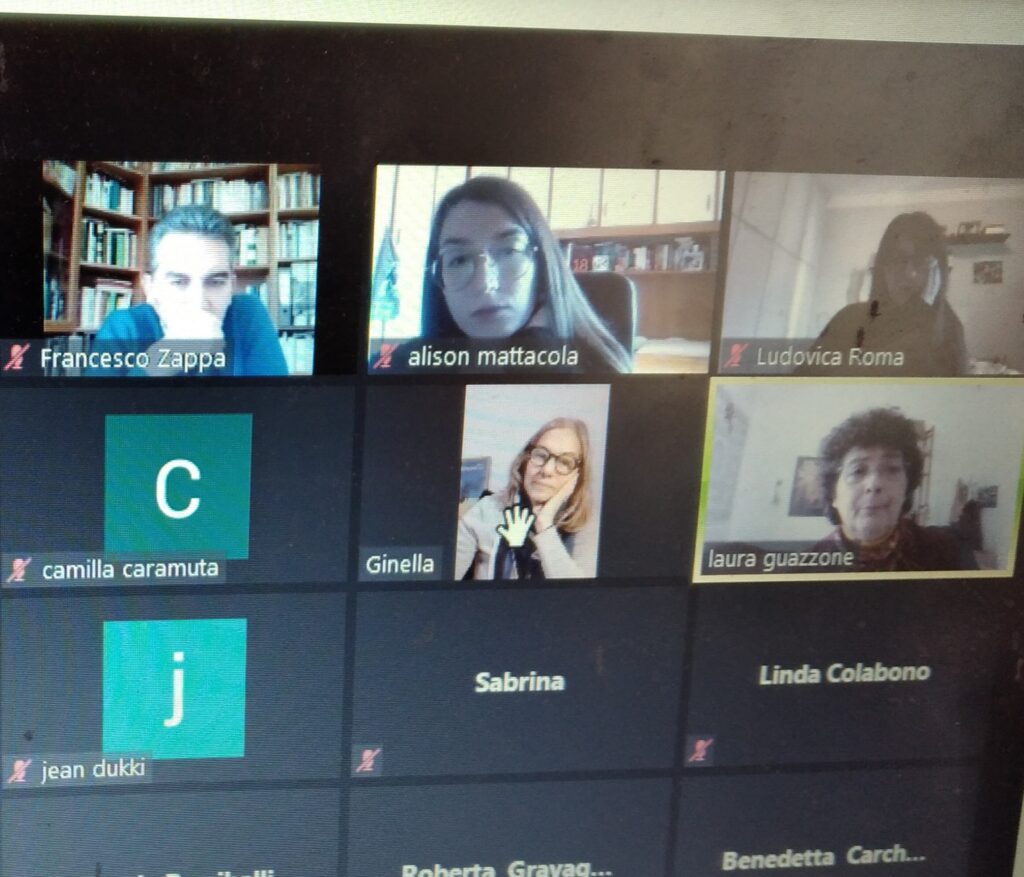
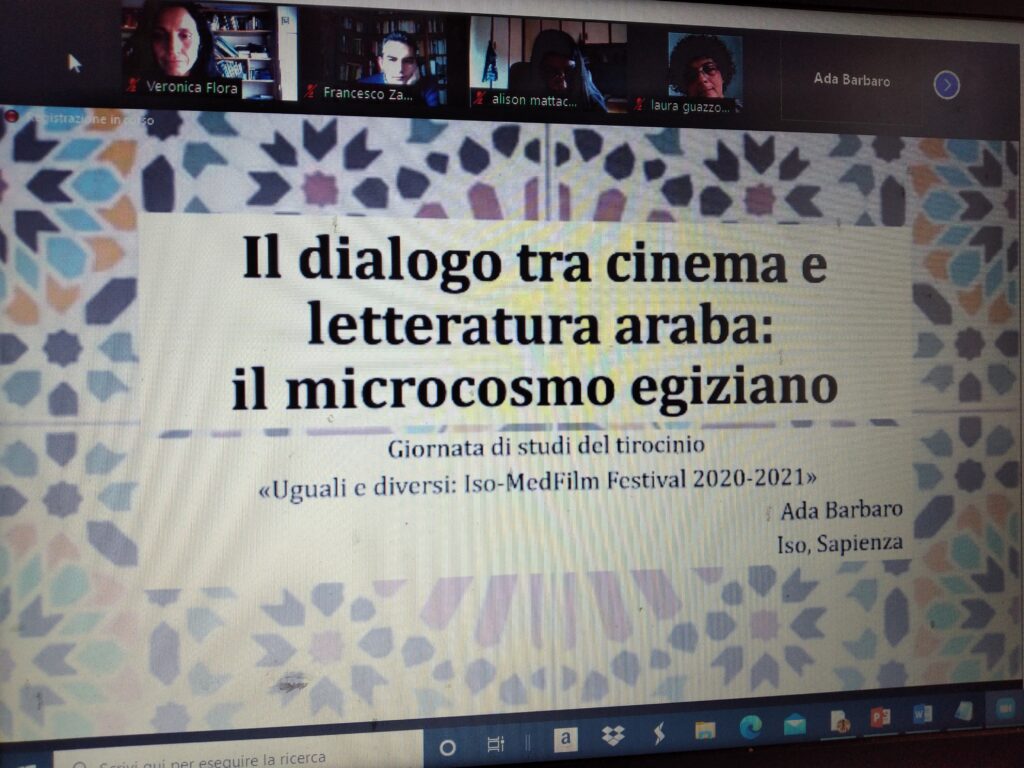
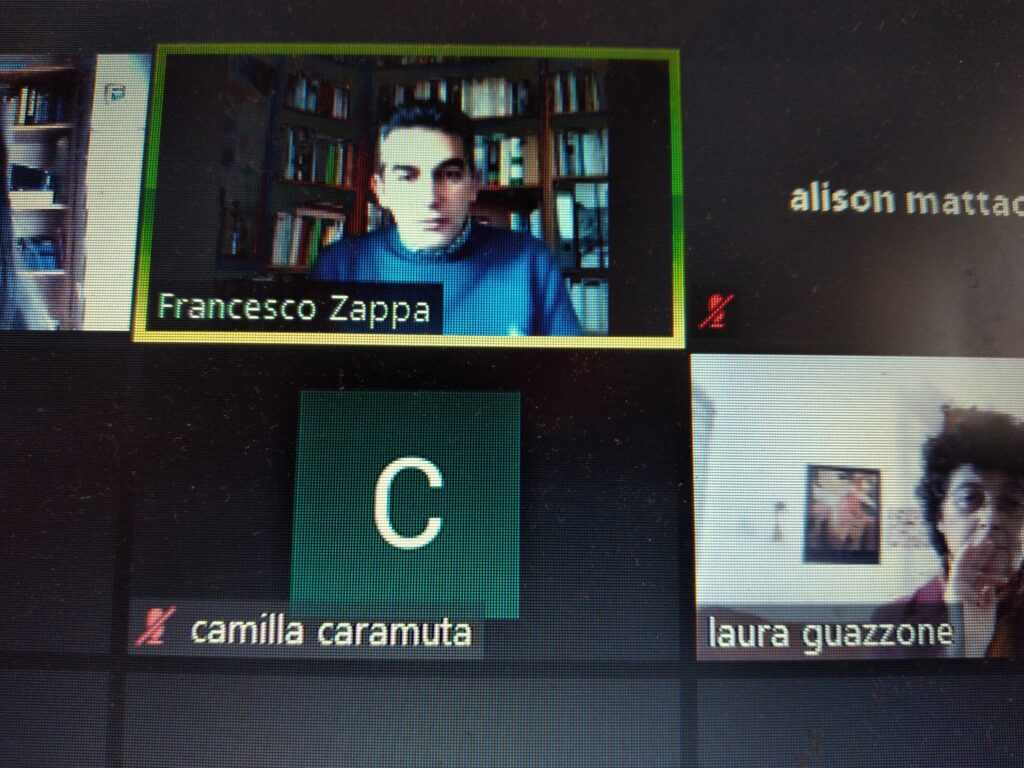
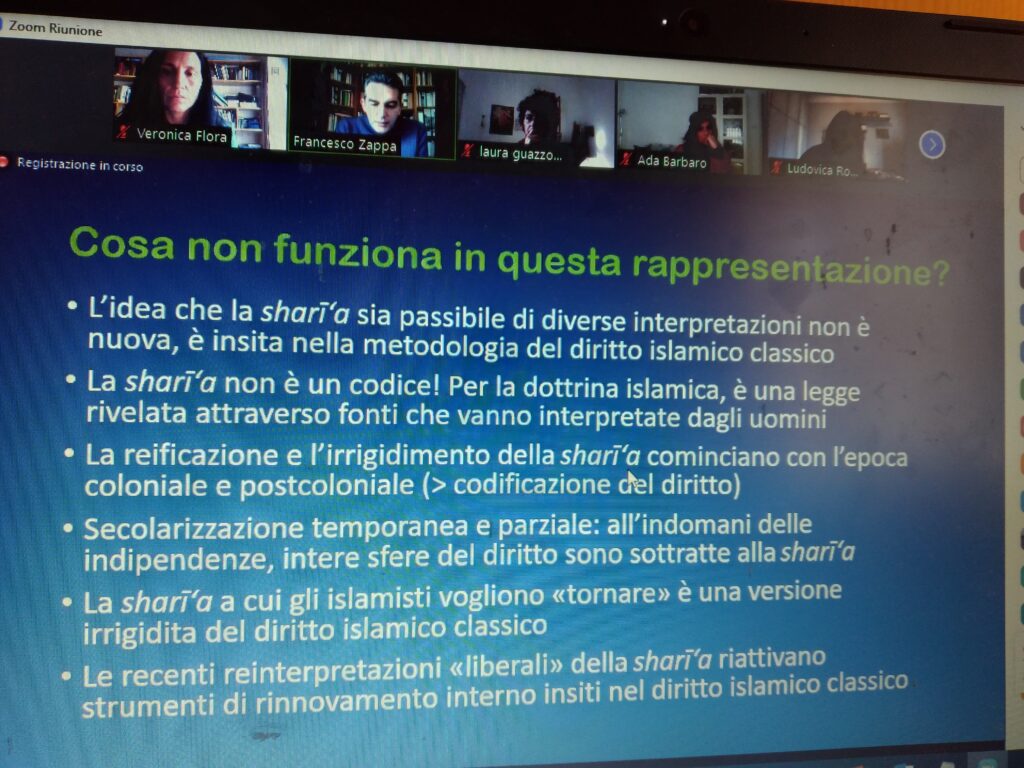

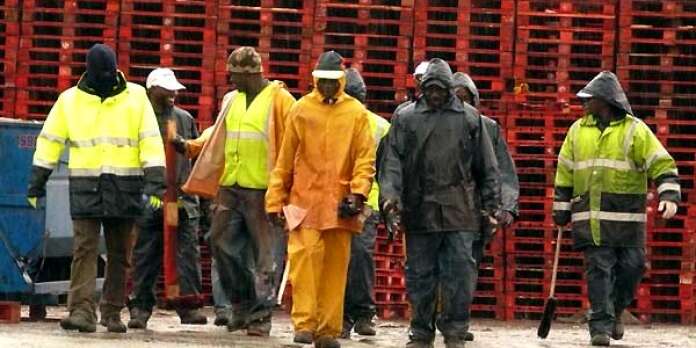
Director: Rabah Ameur-Zaïmeche
Paese: France, Algérie | Anno: 2008 | Durata: 1h 33min
In a totally declining industrial zone, discussions about decent wages and practicing religious have upset the delicate agreement between the boss of a dilapidated truck garage and his workers in this visually striking insight into the experience of Franco-Algerian immigrants.
MedFilm Festival 2009 // Amore&Psiche
Director: Faysal Soysal
Country: Turchia | Year: 2015 | Lenght: 58′
Hadice Mehmedovic is an Srebrenitsa Mother who lost her husband and two children in Srebrenica Massacre. She came back to Srebrenica after many years to find her children dead body to have their graves. She found them after 10 years but some part of body is missing.
Firstly she did not want to bury like that but in the end she accept to bury them as there was not any hope about the missing parts. She tries to live in her old house with her memory. Mirsad Duratovic lost all of his family member accept his mother during Prijedor Massacre. He was prisoner in concentration camps-Manyecha, Omarska, Trnapolje.. which established by Serbian soldier. He came back from Germany to find corpse of his father.
Last year he found him in Tomashnitsa mass grave and in July He buried him. He tries to live in homeland however everyday he confront the Serbian killer of his family.
MedFilm Festival 2009 // Open Eyes

Director: Salomé Aleksi
Cast: Marina Kobakhidze, Gia Abesalashvili, Rusudan Bolkvadze, Paata Guliashvili, Nino Kasradze
Country: Georgia | Year: 2009 | Duration: 30 ′
Tamara lives and works in Italy. He takes care of an old lady named Paola. Her job allows her to save money and support her children who live with their father in one of Georgia’s small villages. During this time, her husband dies in a car accident but his illegal status does not allow Tamara to leave Italy. Unable to attend his funeral, she decides to attend her husband’s funeral by long distance cell phone.
Director’s statement
The film is about women who live and work illegally in developed countries. Their only mission is to save enough to support family members living in Georgia.
MedFilm Festival 2010 // Cortometraggi
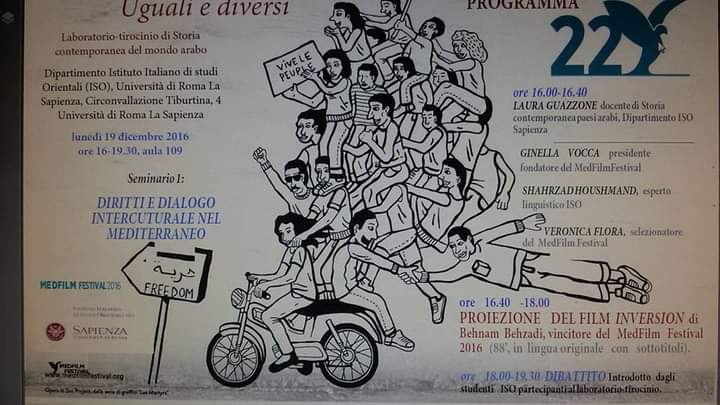
Director: Semih Kaplanoğlu
Cast: Bora Altaş (Yusuf); Erdal Besikçioglu (the father Yakup); Tülin Özen (mother Zehra)
Country: Turkey | Year: 2010 | Duration: 104 ‘
Yusuf is a lonely child who lives with his parents in a remote area of a mountain forest. The parent raises bees and the child has great admiration for the one with whom he shares secrets. Yusuf, who can read fluently at home, is stuck at school and cannot get the red plaque that the teacher women as a reward for those who read well. The decrease in the presence of the parents’ appi necessitates trying to place the hives in more remote locations and at higher heights. One day the man will not return, and while his wife goes looking for him, the child will feel prompted to hope for his next reappearance from a sacred reading.
MedFilm Festival 2010 // Amore & Psiche
Director: Pere Portabella
Country: Spain | Year: 2015 | Duration: 126 ′
The second part of one of Pere Portabella’s historical works, “Informe general sobre unas cuestiones de interés para una proyección pública”, released in 1976 in conjunction with the beginning of the political transition process after Franco’s death. This second Informe comes in the context of a serious systemic crisis of a cultural, economic-financial, political and energy nature. And it is above all a testimony of the way in which civil society is emerging from the crisis with a new protagonism of citizen, which simply consists in the citizens’ rapprochement with politics.
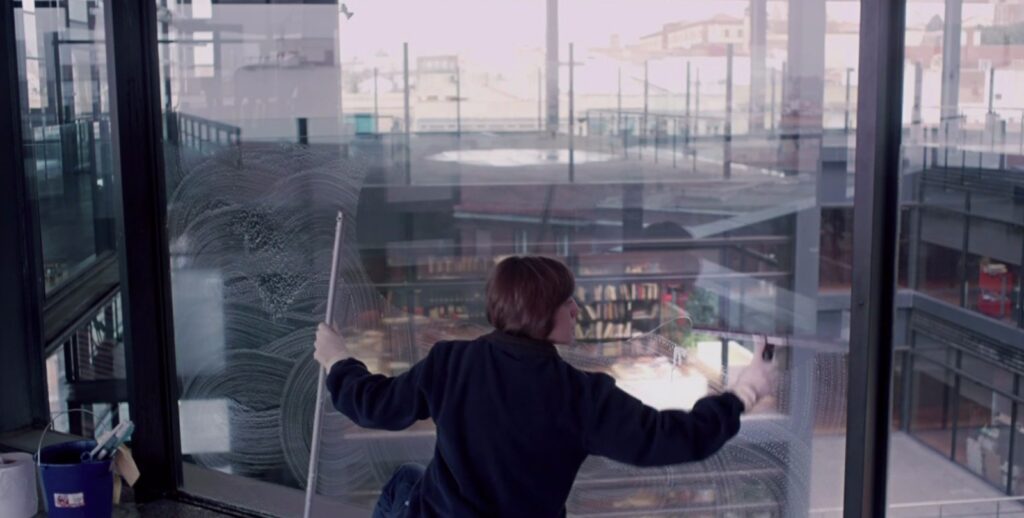
Born in Figueres in 1927, Pere Portabella has maintained his political commitment with all the protest movements against the dictatorship of Francisco Franco since the 1960s. Elected senator in the first democratic elections after Franco’s death, he was also a member of the Parliament of Catalonia. At the head of Films 59, he has produced emblematic films of Spanish cinema such as Carlos Saura’s “I monelli” (1959), Marco Ferreri’s “La carrozzella” (1960) and Luis Buñuel’s Viridiana (1960). As a director, he has been active for over forty years, combining the legacy of avant-garde culture with a language of rupture. The only Spanish artist present at Documenta XI in Kassel in 2002, in 2008 he received an honorary degree from the Universidad Autónoma de Barcelona. His works have been presented in prestigious international festivals and in museums such as MoMA, Center Pompidou, Reina Sofia Museum and Tate Modern.
MedFilm Festival 2010 // Open Eyes
Director: Pere Portabella
Country: Spagna | Year: 1977 | Lenght: 154′
On November 20, 1975, Francisco Franco died. Finally, Spain can slowly transform itself into a democracy. Thus begins the period called “transición”, which ends for some on 6 December 1978 with the ratification of the Spanish Constitution; for others with the electoral victory of the Spanish Socialist Workers’ Party in 1982, after a fascist coup attempt the year before.
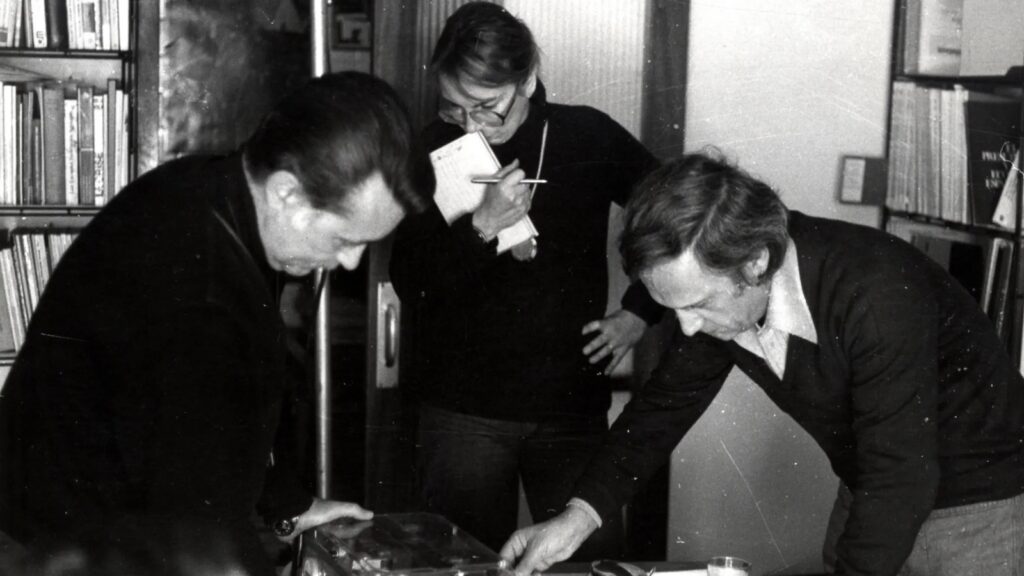
“Informe general sobre unas cuestiones de interés para una proyección pública” covers the period preceding the nation’s first free elections after Franco, on June 15, 1977 – an event that is at the same time very real, if a little theatrical “, which led to Portabella to approach the project as if it were a piece of fiction. He was certainly not a disinterested subject: Portabella himself was a candidate in the elections, and would have taken part in the drafting of the Constitution of ’78.
MedFilm Festival 2010 // Open Eyes